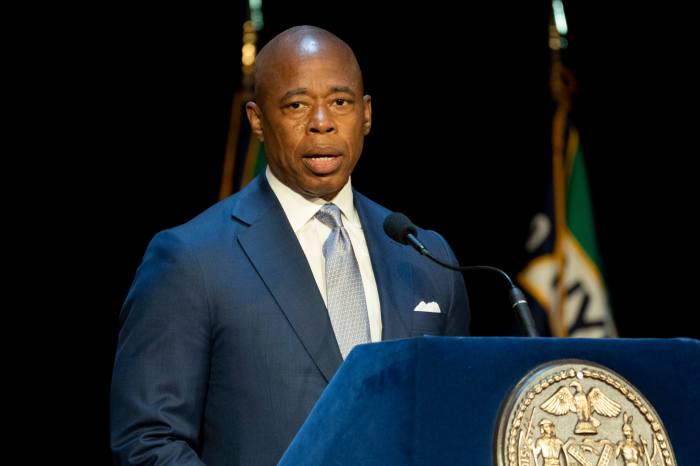OTTAWA – When Liberal Senator Dennis Dawson introduced a private-member’s bill this spring, it was instantly denounced by the governing Conservatives as an “unCanadian” and anti-democratic assault on free speech.
So he was taken aback to discover a few weeks later that a Conservative MP had volunteered to sponsor his bill once it makes its way to the House of Commons.
Dawson’s bill is one of 28 private-members’ bills proposed by Liberal or independent senators that Tory MPs hastened to sponsor last month – a novel procedural tactic that Liberals suspect is designed to stop the bills dead in their tracks, despite government denials.
“They’ve found a way to hijack the process,” fumed Dawson.
“Now I know that even if I get (my bill) through the Senate … it will be hijacked in the other place by somebody who represents a party that’s already opposed to it.”
Normally, the author of a Senate private-members’ bill arranges to have a sympathetic MP sponsor it once it clears the upper house and arrives in the Commons. The sponsor informs the clerk’s office that he or she will take responsibility for shepherding the bill through the Commons.
But last month, Tory MPs began rushing to the clerk’s office to sponsor bills almost the moment they were tabled in the upper house, whether or not they actually supported the bills and without waiting to see if they’d actually ever make it to the Commons.
In their zeal to beat out any other prospective sponsors, the Tories wound up sponsoring Liberal Senator Mac Harb’s bill to ban the seal hunt, which turned out to be dead on arrival since he couldn’t find a seconder in the Senate to even introduce it.
Jay Hill, the Conservative government’s House leader, denies the government is trying to pre-empt Senate bills. Rather, he says the move is aimed at controlling the volume of senators’ private-members’ bills so that they don’t unduly eat into the limited time available for MPs’ private-members’ business.
“I can tell you there’s no intention to start a war with the Senate,” Hill said in an interview.
“The intent is to ensure that we have a fair system and by that I mean fair for both houses.”
Still, Hill acknowledged there are “a range of ways” the government can kill a senator’s bill that it doesn’t like. And he didn’t rule out using them on bills such as Dawson’s, which is aimed at ending pre-election partisan advertising binges.
Hill noted, for example, that a bill automatically dies if its sponsor fails to show up twice for debate on it.
“It was not my intention when we started this strategy to use this process to make sure bills don’t see the light of day,” he said.
“Certainly within the rules that could be the outcome. But we’re going to review them on a case-by-case basis.”
Three of the 28 bills sponsored by Tory MPs were initiated by Lowell Murray, who sits in the Senate as a Progressive Conservative.
He said he suspects all three of his bills are sufficiently controversial – particularly one calling for repeal of the Conservative’s vaunted fixed-election-date legislation – that his uninvited Tory sponsors won’t be keen to advance them through the Commons.
“It’s a corruption of the system, that’s what it is,” said Murray.
“And it’s stupid along with everything else because if the Senate dug in its heels, it would be very difficult for the government to get its business done.”
But Hill said the government resorted to the tactic only after opposition parties rejected proposals to make the private-members’ business process fairer for MPs.
MPs’ names are drawn in a lottery for precedence in presenting private-members’ bills or motions. Typically, there are 15 top bills or motions before the Commons at any point, with another 15 ready to go.
Whenever a private-members’ bill arrives from the Senate, it is accorded priority in the queue immediately following the initial 30 – pushing back all the MPs in the tail-end of the lengthy line-up.
Hill said the process is unfair to MPs, many of whom never get a chance to introduce private-members’ business. He wants to end the priority precedence given to Senate bills but opposition parties won’t go along with him.
Ralph Goodale, the Liberal House leader, said MPs’ private-members’ bills are accorded the same priority when they arrive in the Senate. He predicted the Tory ploy to give lesser priority to – or simply kill off – senators’ bills in the Commons will lead to tit-for-tat treatment of MPs’ bills in the Senate.
Since both houses of Parliament must approve all bills before they can be enacted, the tactic could put an end to private-members’ business altogether.
“You would, in effect, kill private-members’ business, period.”
Goodale said the latest ploy is part of the government’s continuing “vendetta” against the Senate. And he said it’s particularly hypocritical given the Tories’ denunciations of the unelected chamber as an affront to democracy.
“What they’re basically saying is these topics (in the senators’ bills) will not be debated. So it is very clearly the stifling of free speech. It’s an effort to muzzle a house of Parliament.”
Goodale said Liberals may launch a procedural challenge to the Tory tactic when Parliament resumes in the fall.
















